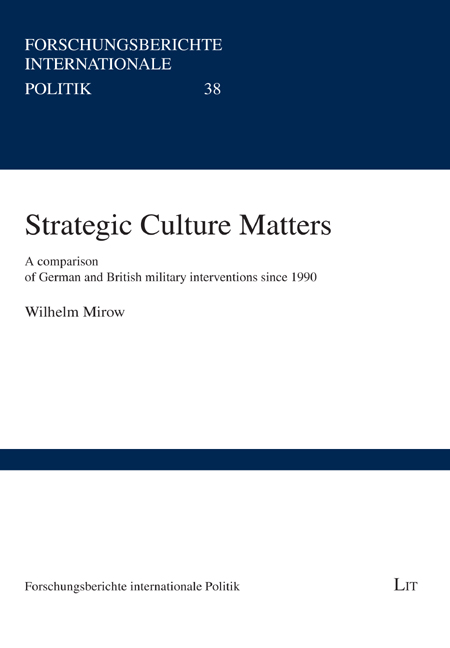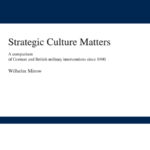Beschreibung
This book explores the question of why a significant difference in the
frequency and intensity with which Great Britain and Germany used military
force since 1990 persists despite reunification and the end of the Cold
War. Based on the theoretical framework of moderate constructivism, this
thesis argues that differences in strategic culture can explain this
puzzle. To this end, it analyses opinion polls and military interventions
abroad and then compares decision processes and debates leading to
military interventions in Kosovo, Sierra Leone, the Democratic Republic of
Congo and Afghanistan.
Wilhelm Mirow obtained his Master degree in International Relations from
the Freie Universität Berlin in January 2008 and spent a semester abroad
at Sciences Po Paris after having completed his Bachelor of Science in
International Relations at the London School of Economics and Political
Science in 2005. He then interned at the United Nations Headquarters
Secretariat in the Department of Economic and Social Affairs, Office for
ECOSOC Support and Coordination for six months.


